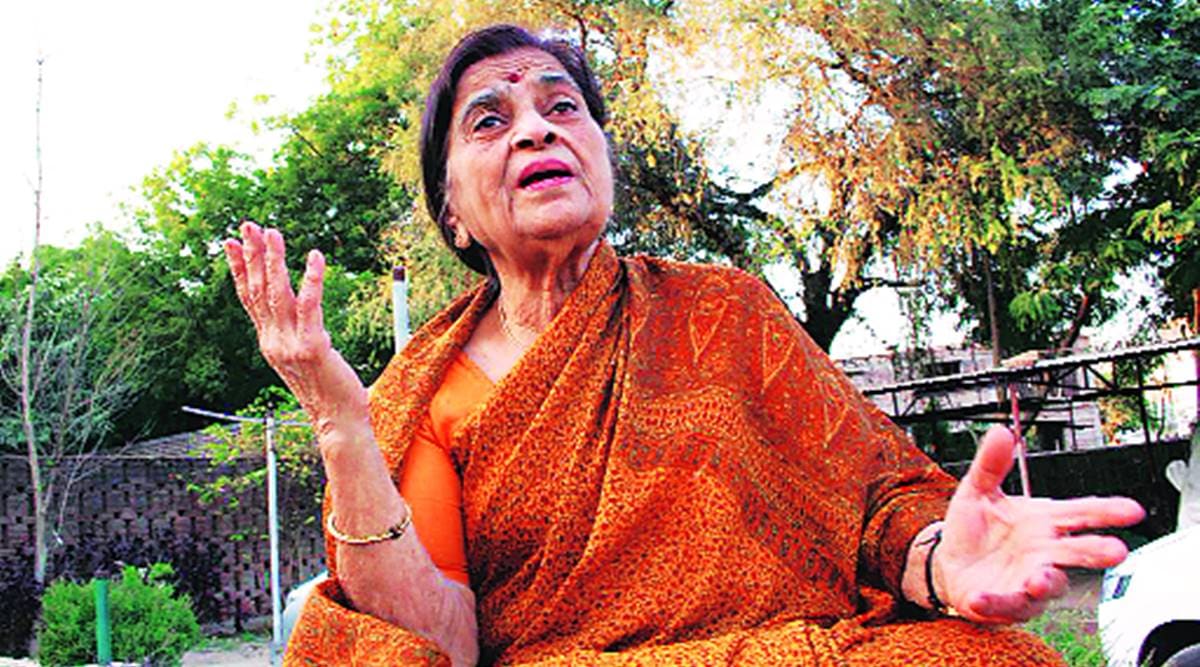 Kaumudi Munshi
Kaumudi MunshiWhen Kaumudi Munshi moved to Mumbai in 1951, she came with the dream of becoming a singer on radio, which seemed like a respectable choice for women in those days.
In the big city, she met a family friend, Ninu Mazumdar, a composer and lyricist associated with Mumbai’s film industry and the All India Radio (AIR). They met in 1952 and the rest, as they say, was history. Munshi went on to become one of the most beloved voices in India, gracing homes and concerts alike with her sugam sangeet.
The singer, known as the “Nightingale of Gujarat”, passed away in the early hours of Tuesday at Somaiya Hospital in Sion due to Covid-19.
Prime Minister Narendra Modi shared his condolences in Gujarati, saying, “I am saddened by the demise of Kaumudi Munshi, the leading singer of Gujarati Sugam Sangeet. His (sic) contribution in popularizing Gujarati Sugam Sangeet will always be remembered by the music loving generations…”
Munshi was born in 1928 in Varanasi to a bilingual family speaking Hindi and Gujarati. Among the influential members of her family was her uncle, Ramanlal Vasantlal Desai, a notable Gujarati novelist in pre-Independent India.
Armed with an arts degree in Music from Banaras Hindu University, Munshi came to Mumbai, where her brothers were settled. She was selected in an audition for AIR, and joined the chorus for Mazumdar’s compositions.
It was little surprise that soon she started singing solo. Her association with Mazumdar catapulted her into a life where music and lyric reigned supreme. The two would marry after Mazumdar’s first wife, Sharada, passed away in 1954. Around this time, Mazumdar was the light music producer for AIR Bombay, which shared its songs with its Ahmedabad counterpart.
Munshi trained under the legendary thumri exponent, Siddheshwari Devi. For five years, she also trained for ghazals under Taj Ahmed Khan. Parallely with her training, Munshi was keenly interested in Bhojpuri folk songs, dadra and chaiti. In her later years, she became a guru in her own right, with students such as Grammy-nominee Falu.
Early on, Munshi’s versatility meant that she could shift effortlessly between the needs of different stages and genres. Whether it was classical or light music, a garba or a ghazal, she was able to capture the hearts of her audiences in Gujarati, Hindi and Urdu. Some of her best loved garba songs, played even today during festivities, are saachi re maari sat re bhavaani ma and nav nav raat na norta karish ma. In fact, her first LP was a garba suite brought out by HMV in 1952.
However, the Gujarati community will forever hold Munshi close to its heart, and ears, for the soothing quality of her light music or sugam sangeet. With numerous songs to her credit, Munshi not only popularised the genre but also loaned it a serious devotion, the kinds that were reserved for classical music alone. Her chorasi rangno saathiyo re mandyo will remain the lilting hum for generations of Gujarati fans.
She is survived by her son, music producer Udhai Mazumdar, and stepdaughters, actor Meenal Patel and feminist Sonal Shukla.
📣 The Indian Express is now on Telegram. Click here to join our channel (@indianexpress) and stay updated with the latest headlines
For all the latest Mumbai News, download Indian Express App.